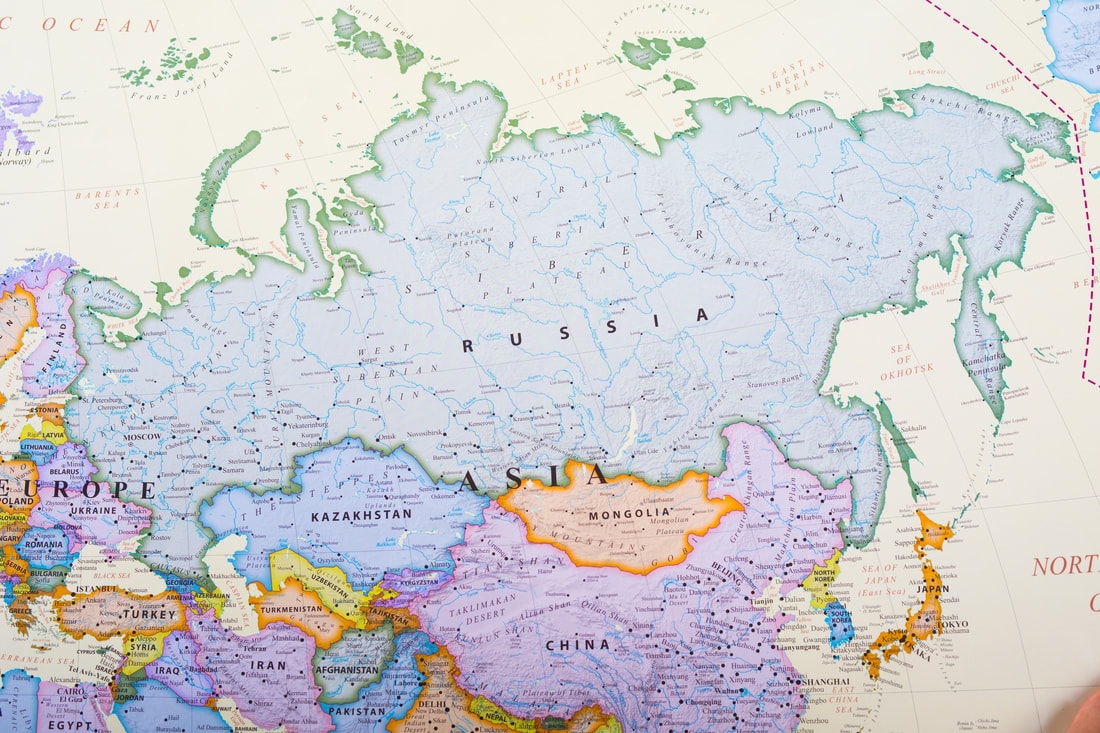ACADEMIC LISTENING TEST PRACTICE
A SHORT HISTORY OF RUSSIA
A SHORT HISTORY OF RUSSIA
For Students Preparing for Academic Tests / IELTS and TOEFL
Listen as you read the script.
Playing Time: 3 minutes 22 seconds
Russia, also known as the Russian Federation, has a rich and complex history dating back to the 9th century. The earliest history of Russia is closely tied to the Eastern Slavic tribes, who are believed to have settled in the region around the 8th century. The first East Slavic state, Kievan Rus, was founded in the 9th century by the Viking Rurik and his descendants. This state was centered in Kiev and controlled much of what is now Russia, Ukraine, and Belarus.
In the 13th century, the Mongol Empire conquered Kievan Rus and ruled over the region for several centuries. This period of Mongol domination greatly affected the development of Russia, as the Mongols introduced many new technologies, customs, and political institutions. The Mongols also forced the Eastern Slavs to adopt a new religion, Buddhism, which was later replaced by Eastern Orthodox Christianity.
In the late 14th century, Moscow emerged as a powerful city-state and began to challenge Mongol rule. Ivan the Great, who ruled from 1462 to 1505, united many of the Russian princes and expanded Moscow's power. Ivan's grandson, Ivan the Terrible, became the first Tsar of Russia in 1547, and his reign saw the consolidation of the Russian state and the expansion of Russian territory.
During the 17th century, Russia expanded its territory under the rule of Tsars such as Peter the Great and Catherine the Great. Peter the Great modernized the Russian state and expanded its territory by conquering parts of Poland and Sweden. Catherine the Great, who ruled from 1762 to 1796, further expanded the Russian Empire and implemented many reforms to modernize the country.
The 19th century saw the rise of revolutionary movements in Russia, and in 1917, the Bolsheviks, led by Vladimir Lenin, seized power in the Russian Revolution. Lenin established the Soviet Union, a communist state, and began a program of rapid industrialization and collectivization. Joseph Stalin, who came to power after Lenin's death, continued these policies and also implemented a brutal program of repression that led to the deaths of millions of people.
During World War II, the Soviet Union, led by Stalin, played a crucial role in the defeat of Nazi Germany, and the country emerged as one of the two superpowers in the world. The Cold War, which lasted from the end of World War II to the late 1980s, was a period of intense military and ideological tension between the Soviet Union and the United States.
In 1991, the Soviet Union collapsed, and Russia became a free and democratic country. However, despite many initial gains, Russia is currently experiencing massive economic and political instability. This has largely been due to widespread corruption, a disregard for individual liberties, and Vladimir Putin's ill-fated decision to invade Ukraine, a neighboring European country.
In the 13th century, the Mongol Empire conquered Kievan Rus and ruled over the region for several centuries. This period of Mongol domination greatly affected the development of Russia, as the Mongols introduced many new technologies, customs, and political institutions. The Mongols also forced the Eastern Slavs to adopt a new religion, Buddhism, which was later replaced by Eastern Orthodox Christianity.
In the late 14th century, Moscow emerged as a powerful city-state and began to challenge Mongol rule. Ivan the Great, who ruled from 1462 to 1505, united many of the Russian princes and expanded Moscow's power. Ivan's grandson, Ivan the Terrible, became the first Tsar of Russia in 1547, and his reign saw the consolidation of the Russian state and the expansion of Russian territory.
During the 17th century, Russia expanded its territory under the rule of Tsars such as Peter the Great and Catherine the Great. Peter the Great modernized the Russian state and expanded its territory by conquering parts of Poland and Sweden. Catherine the Great, who ruled from 1762 to 1796, further expanded the Russian Empire and implemented many reforms to modernize the country.
The 19th century saw the rise of revolutionary movements in Russia, and in 1917, the Bolsheviks, led by Vladimir Lenin, seized power in the Russian Revolution. Lenin established the Soviet Union, a communist state, and began a program of rapid industrialization and collectivization. Joseph Stalin, who came to power after Lenin's death, continued these policies and also implemented a brutal program of repression that led to the deaths of millions of people.
During World War II, the Soviet Union, led by Stalin, played a crucial role in the defeat of Nazi Germany, and the country emerged as one of the two superpowers in the world. The Cold War, which lasted from the end of World War II to the late 1980s, was a period of intense military and ideological tension between the Soviet Union and the United States.
In 1991, the Soviet Union collapsed, and Russia became a free and democratic country. However, despite many initial gains, Russia is currently experiencing massive economic and political instability. This has largely been due to widespread corruption, a disregard for individual liberties, and Vladimir Putin's ill-fated decision to invade Ukraine, a neighboring European country.
political map showing modern-day Russia
Note: For more cool ESL resources about countries, visit my All Things Topics site.


